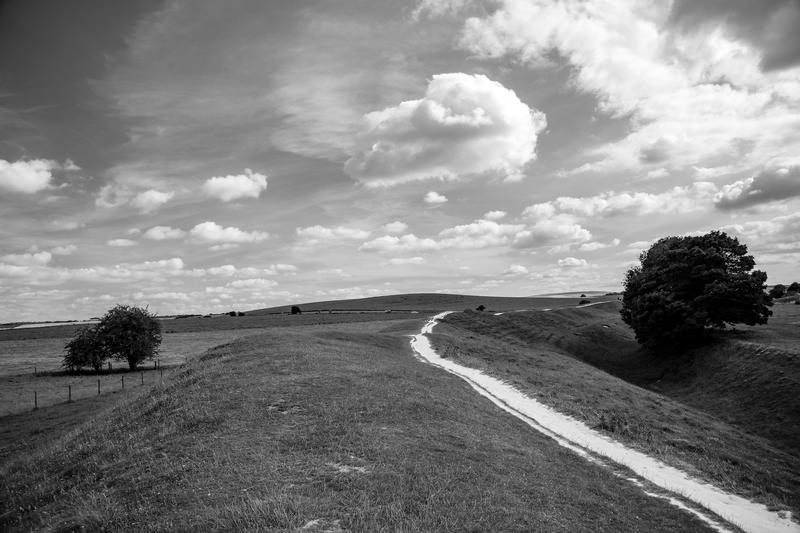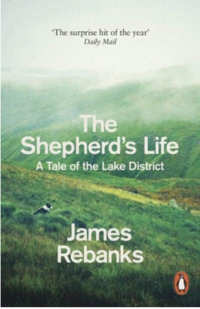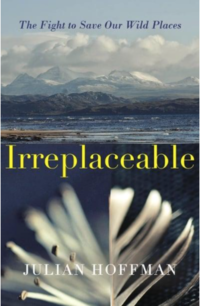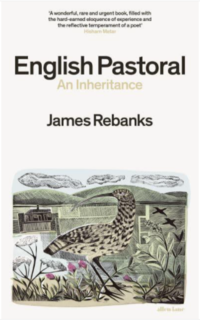THE SUDDEN IMPORTANCE OF PLACE

THE SUDDEN IMPORTANCE OF PLACE
QUAD editor Richard Lofthouse discusses recent books arguing for a stronger sense of place
Published: 8 February 2021
Author: Richard Lofthouse
Share this article

James Rebanks (Magdalen, 1999) put it bluntly in his 2015 memoir The Shepherd’s Life, which concerns growing up on a Lake District farm and later attending Oxford. Until a late point in his school education, he couldn’t see the point:
‘I never once wished I’d gone to university. The few people I knew who had been didn’t seem to have come back any wiser. They seem to have returned full of nonsense. And they never really fitted in again.’ (p137)
While he has apparently disproved this thesis by returning to farming in the Lake District, ex-Oxford, the whole issue of place has lately become red hot, not only as politics but as ecology.
When QUAD recently interviewed the Oxford economist, Professor John Kay, about his 2020 book co-authored with Oxford's Professor Paul Collier, Greed is Dead: Politics After Individualism, one of the core ideas was that you can divide the population into ‘somewheres’ and ‘anywheres’.
The origin of this distinction is Prospect Magazine founder David Goodhart's The Road to Somewhere (2017).
The vast majority of Britons are, statistically, ‘somewheres’ says Kay – they still live close to where they grew up and they don’t hesitate to call it home. Place defines them.
But then you have an elite of educated people whose identity is determined by their leaving. Whether achieving one university degree or several, they left ‘home’ and became hypermobile. They live wherever they want to, they marry across traditional boundaries of locality and nationality and they often move abroad, sometimes permanently. These are the ‘anywheres.’
The subject presents itself as a socio-politically relevant note on our times, in Kay’s book resonant with ironic Brexit truths concerning regional UK populations who never left home but also felt trapped (or at least underappreciated) in their particular place, and certainly didn’t relate to a bureaucracy coming out of Brussels. To put it mildly, they didn’t think that freedom of movement was a benefit so much as a trick. If that version of events was only put into their heads by Leave campaigners, along with scare tactics concerning immigrants, the point might still be that they were receptive to these ideas, as the Referendum result in 2016 suggested.

Aside from politics, place also has a deep relation to ecology exquisitely brought into focus by Julian Hoffman in his 2019 book Irreplaceable, The Fight to Save our Wild Places.
Early in the book he makes plain that the people he interviews are ordinary folks, not boffins and certainly not academics or ecologists or anyone like that, and he starts off by placing himself on Brighton’s Palace Pier watching a murmuration of starlings while smelling hot doughnuts and listening to slot machines.
But from here we go straight off to the Kent marshes and specifically the Hoo Peninsula, a completely ignored and forgotten backwater where Boris Johnson still envisages the largest airport in Europe.
A finger-shaped jut of land framed by the Thames and Medway river estuaries, the Hoo Peninsula, or ‘Boris island’, says the author, is a marshland habitat of incomparable importance for numerous endangered species of bird, and real people live here. There are communities with deep histories. There are even old churches. What about them?
In a searing indictment Hoffman interposes exquisite detail of culture, history and wildlife with the Foster + Partners blueprint for the airport that recommended moving whole churches stone by stone and concreting over just about everything else, with aggressive bird deterrents to prevent engine strikes. In plain English, they envisaged the total annihilation of a supposedly ‘heavily protected’ natural habitat.
The fact that the object of local wrath is an airport is not lost on Hoffman.
The elites who are most likely to fly a lot are also the least likely to value place, as de facto ‘anywheres’. The underlying implication is that they might talk a good game about climate change but it wouldn’t lead them to give up their corporate airmiles.
Hoffman cites artist Alan Gussow on the meaning of place,
‘The catalyst that converts any physical location – any environment if you will – into a place, is the process of experiencing deeply. A place is a piece of a whole environment that has been claimed by feelings.’
Everyone relates to place. It might be your local pub. But in ecology and matters of landscape, it helps if you’re a ‘somewhere’ because if you have lived and maybe worked the land all your life, then your intimacy and unbroken immersion in that landscape will be undiluted.

This brings us back to James Rebanks and his second book English Pastoral, An Inheritance (2020), which begins with a memory of ploughing a field with his grandfather, perched inside the cab of a tractor, and ends by arguing in favour of no-till crop cultivation.
The book’s ultimate strength is its immense and wonderful sense of place, a farm in the Lake District with special breed sheep, sheepdogs, family, weather, sky, wind and rain. You feel you are there, and you want to go and live there, another irony not lost on Rebanks, whose own trajectory has involved working for UNESCO in order to earn enough money to keep the farm alive at a time when farming makes no money.
In this sense the crisis of farming so delicately described is a crisis of capitalism, but also of the environment. Pesticides and fertilisers have worked miracles. But the old saying that ‘we should farm as if we are going to live for a thousand years’ has been thrown into the silage heap:
‘We are struggling to face up to the ecological disaster this has created, at the same time as producing the cheapest food in history.’ (p228)
There is another irony here. Rebanks wouldn’t be writing so beautifully had he not gone to Magdalen, Kay readily agreed that he was an ‘anywhere’, Hoffman’s biography starts, ‘Although I was born in the northeast of England and grew up in southern Ontario, I moved with my wife in the summer of 2000 to a mountain village beside the Prespa Lakes in northwestern Greece…’
I’m not sure where this leaves us, but place matters after all, these authors argue, and it relates not just to politics but to conservation and environmentalism. The feelings that claim a whole environment and lead to a sense of place may be the strongest defence against crazy airport schemes and ruinous agribusiness. Rootless internationalism is suspect because what it gains in breadth it may also lose in authenticity. Educated elites need to be less disparaging and more sensitive, but as anywheres they also come from somewhere - the unwritten premise of these authors.
Lead image: Chalky Downland, Wiltshire, UK (Shutterstock).















